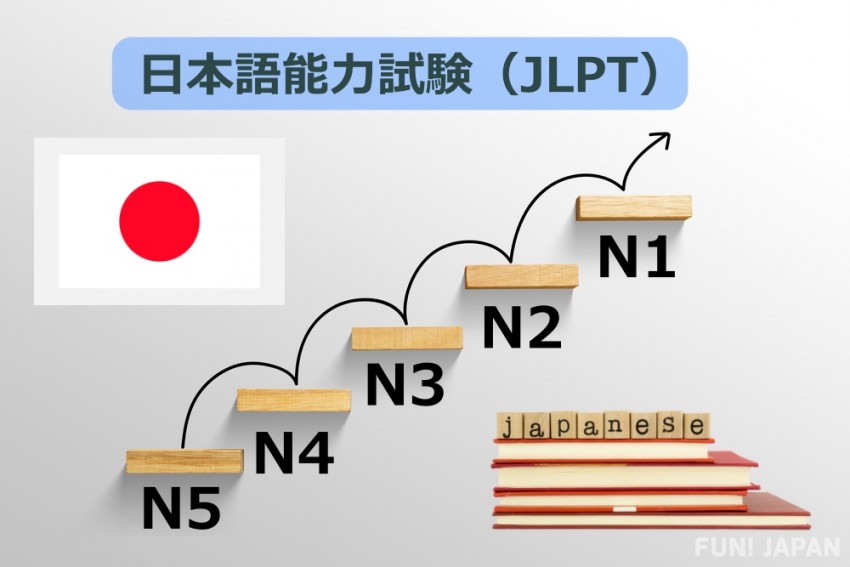
As more and more Japanese businesses attempt to strengthen their presence in foreign markets, a lot more foreign workers are being hired. When hiring foreign people, the thing companies are most worried about are language skills. Depending on the type of work the business does, the amount and type of Japanese that is wanted changes. If you want to work in Japan, you should understand just how much and to what level you need to raise your Japanese proficiency to. In this article, we are going to be going into detail about what kind of level businesses want from potential employees.
How can you measure your Japanese language proficiency?

Most foreigners who are working in Japan have their Japanese proficiency tested through the JLPT (Japanese Language Proficiency Test). There are 5 levels to the exam, starting at N5 and ending at N1.
- N1 - You can understand and use Japanese in almost every situation
- N2 - You can understand everyday Japanese as well as more advanced Japanese to a certain extent
- N3 - You can understand everyday Japanese to a certain extent
- N4 - You can understand basic Japanese
- N5 - You can understand basic Japanese to a certain extent
Most foreigners working in Japan have at least N4 level Japanese. However, depending on what kind of skills you have, there is a possibility you can be hired even without a high understanding of the Japanese language. The reasoning for this is because there will be no affect on your everyday life as long as you can have basic conversations in Japanese. It has been reported that over 90% of foreigners who are job hunting within Japan have at least N2 level Japanese.
Can you Work in Japan if you Don't Speak Japanese?

If you want to work in Japan, is speaking Japanese one of the requirements? There's no actual correct answer to this question. In most cases, Japanese businesses will prioritize people with higher understandings of the Japanese language, however, depending on the business, there are cases that are ever increasing showing that more and more people who can't speak Japanese are being hired to help with a lack of employee numbers. You can typically split just how much Japanese you will need to know into 3 different groups.
① Situations Where High-level Japanese is Hardly Ever Used

As the Japanese government is calling for more and more highly skilled individuals, the lack of staff continues to rise for both IT engineers and engineers in general, this means that Japanese businesses are hiring these types of people more and more. For situations such as this, more-so than a high level of Japanese, you require a high-level of skill and knowledge in the work that you are going to be doing. If you can speak, read and write very basic Japanese then you'll be fine, and more-so than not English language skill is looked at. Furthermore, factories and construction sites are seeing a large gap in workers, so these places also do not require a high level of Japanese, and the opportunity to use Japanese is far and few between.
② Using Your Native Tongue and Japanese at a 50/50 Rate

As more and more Japanese businesses are trying to increase their presence overseas, required languages expand from not only Japanese, but the native tongue of the country they are situated in, this means that more people are being hired in these locations that know both Japanese and the countries native tongue, as well as people who the local business practices. Also, to help deal with the increasing sightseers visited Japan, more foreigners are being hired to help deal with the needs of these people. This is especially true in the travel industry where using only Japanese cannot provide the support needed for the various foreigners using said services, this is why these businesses are hiring more and more foreigners. Foreigners who will be hired from now on will be able to bridge the gap between their country and Japan using both Japanese and their native language.
③ Working in a Completely Japanese Environment

There are quite a few foreigners who take Japanese language classes at a Japanese language school, university or other educational institutions and then search for jobs after graduating alongside native Japanese people. Depending on the workplace there may not even be a chance to use languages other than Japanese, meaning for cases like this, a high level of understanding of Japanese is required. To work in these places, you must have a great understanding of both the Japanese language and Japanese society as a whole.
Summary
When you look into the subject this much, you can clearly see that all foreigners who work in Japan have their own unique situations. There are chances to work in Japan even if your Japanese level is low. However, if you're planning to work and live in Japan then it might be best to try and get your proficiency up to a level where at the very least you won't have issues in your everyday life. If you speak with Japanese people, watch television and read magazines/newspapers then your life in Japan will be much more interesting!
Related Articles
- 【Work & Life in Japan Vol.1】The figures of foreigners whose presence in Japanese society is increasing
- 【Work & Life in Japan Vol.2】Do you want to live in Japan? This is How to Stay in Japan for a Long Time!
- 【Work & Life in Japan Vol. 3】Published graphs of changes in the number of foreign workers in Japan!
- 【Work & Life in Japan Vol.4】Hey! What piqued your interest in Japan?
- 【Work & Life in Japan Vol.5】A Thorough Explanation & Outline of the Types of Residency for Foreigners Working in Japan
- 【Work & Life in Japan Vol.6】I Chose Japan as my First Ever Workplace
- 【Work & Life in Japan Vol. 7】Japan's Employment System
- 【Work & Life in Japan Vol. 8】Leaving Behind a Stable Job and Heading to Japan

Comments